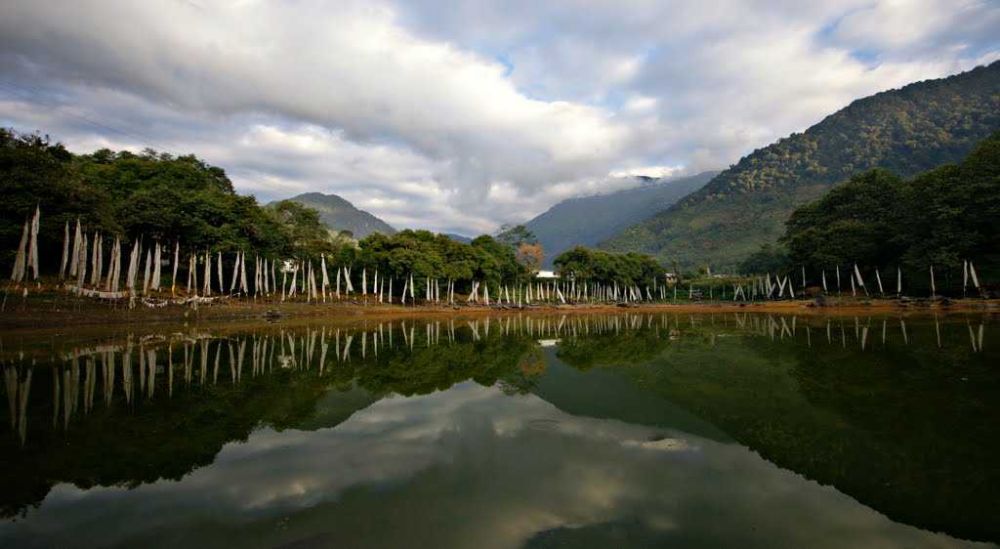

Situated in the serene town of Yuksom in West Sikkim, Kartok Lake is a relatively small yet stunningly beautiful lake that has attracted travelers for many years. Yuksom itself holds a special place in the annals of Sikkimese history as the first capital of Sikkim and the site where the first Chogyal (king) was crowned in 1642. Wreathed in myths and legends, it has been a gateway to mountaineers and trekkers headed towards Mount Khangchendzonga, the third highest peak in the world and a sacred summit in the local lore.
The history of tourism in Yuksom and around Kartok Lake is intertwined with the broader history of Sikkim. When Sikkim opened its doors to tourism in the 20th century, Yuksom became a focal point for trekkers due to its proximity to the Kangchendzonga National Park and sacred high-altitude lakes like Kartok. The location not only appealed to those seeking spiritual experiences but also to nature lovers and adventure enthusiasts.
The lake, named after the Kartok Monastery situated nearby, has been viewed as a sanctified site since the time of the first Chogyal. The sense of tranquility and the cultural significance of the area are factors that draw tourists.
Since its integration into the mainstream tourism map, Kartok Lake has seen a steady rise in visitors, particularly those interested in eco-tourism and sustainable travel practices.
In recent years, tourism trends in Kartok Lake and Yuksom have shifted towards a more sustainable and eco-friendly approach. Visitors are increasingly interested in experiencing the rich Sikkimese culture through community-based tourism. Homestays have become a popular accommodation choice, providing a more authentic and intimate glimpse into the life of the locals, while also providing a sustainable source of income for the community.
Adventure tourism is also on the rise, with the lake serving as a base for various treks and expeditions into the heart of the Kangchendzonga National Park. The push for responsible tourism has been pivotal in preserving the pristine environment of Kartok Lake and its surroundings.
Additionally, spiritual tourism continues to grow, with tourists visiting the lake to meditate and absorb the peace and spirituality the site radiates. The Kartok Monastery, perched near the lake, remains as an embodiment of the religious traditions of Sikkim and is an important stop for visitors seeking to understand the region’s Buddhist heritage.
Kartok Lake in Yuksom is more than a tourism destination; it is a blend of natural beauty, spirituality, and cultural richness that epitomizes Sikkim’s unique heritage. The focus on preserving this integrity through sustainable and ethical travel practices will likely continue to shape its tourism narrative in the years to come, inviting travelers from around the world to partake in its serene magnificence and vibrant history.